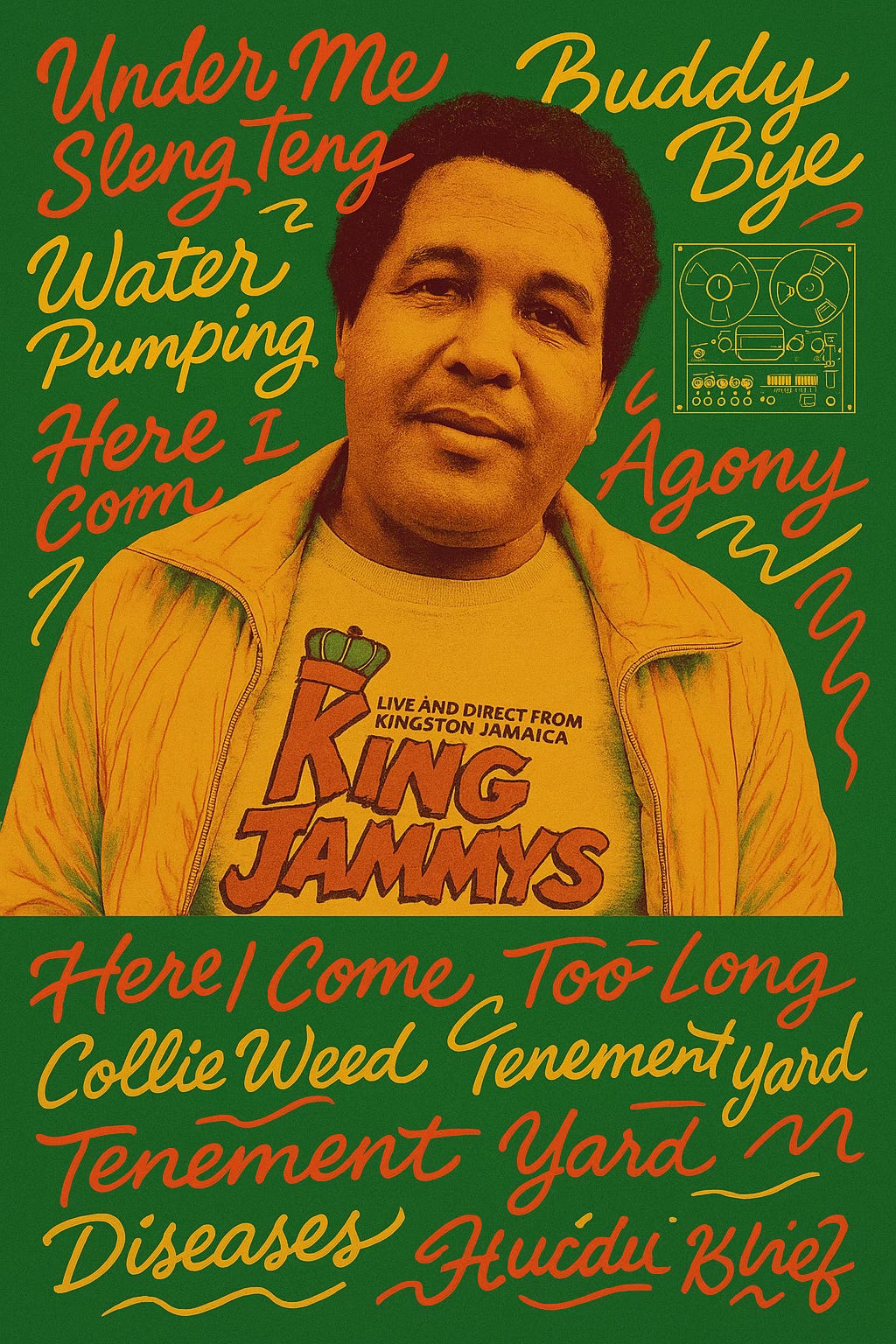From Prince to King: The Birth of a Legend
Lloyd James, better known as King Jammy, is one of the most revolutionary figures in reggae history. Born in 1947 in Montego Bay, Jamaica, Jammy grew up in the Waterhouse district of Kingston, a gritty neighborhood that would later inspire much of his music.
Originally called Prince Jammy, he began his career as a repairman, fixing radios and amplifiers, a skill that gave him a deep understanding of electronics and sound systems. Working closely with the legendary King Tubby in the 1970s, Jammy mastered the art of dub mixing and recording.
His transformation from "Prince" to "King" came in 1985, after the release of Wayne Smith's "Under Me Sleng Teng," the first major digital reggae hit. The success of this track, built on a preset from a Casio MT-40 keyboard, was so monumental that Jammy was crowned "King Jammy," signaling his dominance over a new era of reggae music.
Jammy's Studio: The Digital Birthplace
Jammy built his recording studio in the late 1970s, attached to his home in Waterhouse. Initially a modest 4-track setup, the studio expanded into a powerful 16-track facility by the early ‘80s. It became the epicenter of the digital dancehall revolution.
Inside the Studio:
Mixing Consoles: MCI and Soundcraft boards
Effects: Roland Space Echo (RE-201), Fisher Spring Reverb, MXR Phaser
Instruments: Casio keyboards (including the MT-40), Yamaha DX7, Oberheim DMX drum machine
Tape Machines: Analog reel-to-reel recorders
Mic'ing Techniques:
Drums: AKG D12 (kick), Shure SM57 (snare), Neumann U87 (overheads)
Bass: Direct Input (DI) through custom preamps
Guitars: Shure SM57 near amp cabinets
Vocals: Neumann U87 or AKG C414
By the mid-80s, electronic instruments were dominating, so Jammy shifted to mostly direct recording through his console, greatly reducing the need for traditional mic'ing setups.
King Jammy’s Cultural Impact
Innovation: Jammy revolutionized reggae by transitioning from live bands to studio-driven, digital productions.
Legacy: His templates for digital riddims continue to inspire modern producers.
Mentorship: Jammy trained and influenced engineers and producers like Bobby Digital and Fattis Burrell.
Still active today, Jammy remixes classic riddims with new artists, maintaining his relevance across generations.
Without King Jammy, the face of reggae, dancehall, and even parts of today's pop music landscape would be completely different.
A LOOK AT HIS STUDIO














Share this post